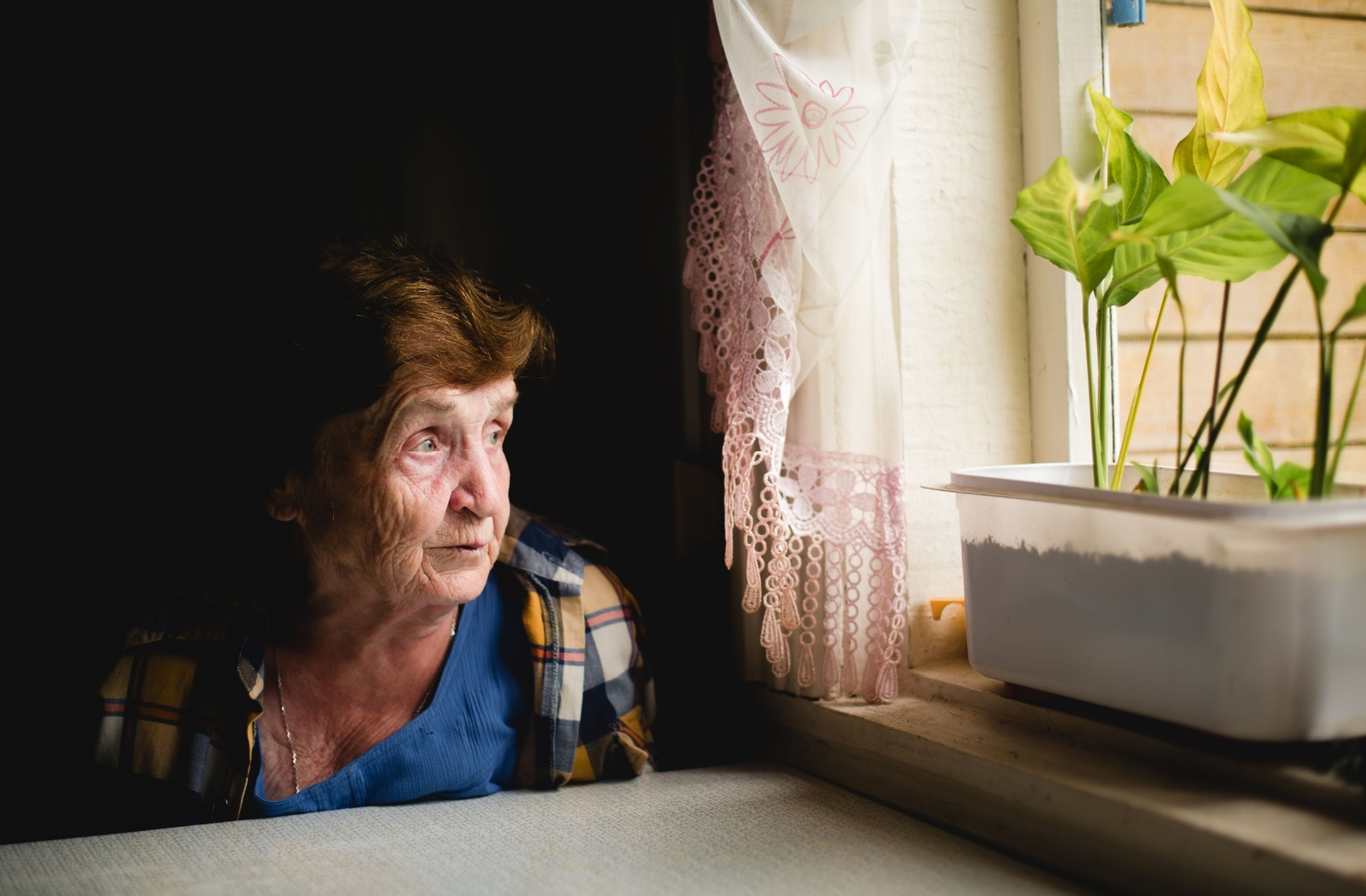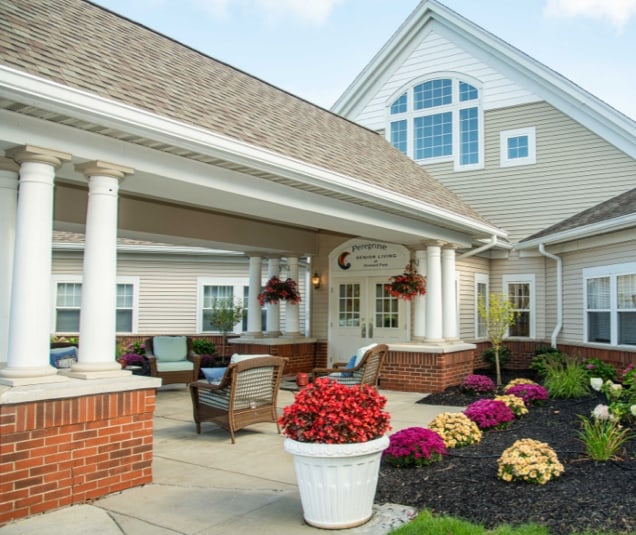Many people selflessly dedicate their time to care for a loved one who develops dementia. But doing so can be difficult alone! And while support from other family members, hired care workers, and respite care can all help ease the stress on your shoulders, caring for a loved one with dementia can still be a lot to manage.
So you’re certainly not the first to wonder whether it’s illegal to leave someone with dementia alone. Maybe they’re asleep, or you just need to run a quick errand, or you need to go pick up the kids and no one else is available. It is not illegal to leave someone with dementia alone, but depending on the severity of their symptoms, leaving them alone for too long could be considered neglect or abandonment–a form of elder abuse.
What is Elder Abuse?
Elder abuse is the abuse, neglect, or exploitation of an adult over the age of 60. Anyone can suffer from elder abuse, regardless of their age, gender, race, religion, or background, though most victims are women and people with disabilities, memory problems, or dementia. Out of the over 52 million people in the US over age 65, 1 in 10 are estimated to suffer from elder abuse.
Mistreatment of older adults can come at the hands of anyone, whether they’re family members, strangers, or healthcare providers, and from anywhere, including that person’s home, their family members’ homes, or healthcare facilities.
Types of Elder Abuse
The word ‘abuse’ often has a physically violent implication. However, elder abuse can come in many forms, including:
- Physical abuse causes physical bodily harm to an older adult, often through hitting, pushing, slapping, or even restraining someone to a bed or room against their will
- Emotional abuse causes psychological harm to an older adult, often through verbal manipulation, hurtful words, threats, yelling, or controlling connection to others
- Sexual abuse causes sexual harm to an older adult, often by forcing them to watch or be part of sexual acts they do not consent to
- Financial abuse causes monetary harm to an older adult, often by stealing or misusing that person’s money or belongings (including forged checks, retirement & Social Security benefits, credit cards, etc.)
- Neglect can encompass many of the above forms of abuse and happens when a caregiver does not respond to an older adult’s needs (including physical, emotional, and social needs)
- Abandonment is when an older adult who needs help is left alone without any plan for their continued care
Since individuals with dementia have memory problems, they are often targets for individuals purposefully looking to cause abuse or for someone to take advantage of.
Signs of Elder Abuse
When it comes to a parent with dementia, the information in this post might reaffirm your need to ensure they are not left alone for too long or that there is always a plan for their care, whether that’s a neighbor coming by to check on them, in-house visits by hired help, or assisted living.
Nonetheless, it’s still helpful to know the signs of elder abuse when your loved one is in the care of others. These signs include:
- Development of preventable conditions like bedsores
- Unexplained bruises, burns, cuts, or scars
- Hazardous, unsafe, or unclean living conditions
- Reduced personal grooming
- Sudden and unexpected financial loss despite financial resources
- Signs of trauma (such as rocking back and forth)
Elder Abuse Laws in New York
Unfortunately, New York State does not have any mandatory reporting laws regarding elder abuse and neglect, though it does require those who work in adult protective services to report any suspicion of abuse. It is up to us as individuals and communities to report any suspected and confirmed cases.

Once reported, New York does have state laws to protect older adults who need it, including:
- N.Y. Penal Law § 260.32 – Endangering the welfare of a vulnerable elderly person, or an incompetent or physically disabled person in the second degree;
- N.Y. Penal Law § 260.34 – Endangering the welfare of a vulnerable elderly person, or an incompetent or physically disabled person in the first degree; and
- New York Social Services Law § 473-b which protects those who report suspected elder abuse in good faith from civil liability
Ultimately, violating the statute of either of the above NY Penal Laws is a class E felony, resulting in a sentence of up to 4 years in prison accompanied by a probation of 5 years and a substantial fine.
Resources for Help
If you suspect that your loved one or another older adult is suffering from elder abuse, you can use any of the following resources to report your suspicions in New York:
- New York State Protective Services for Adults Hotline: 1.800.342.3009
- New York Elder Abuse Resources Pages
- NCEA State Resource Directory
- 3-1-1
- 9-1-1 (for immediate physical dangers)
Finding Extra Support
Statistics around the prevalence of elder abuse can make it difficult to reach out for help if you’re struggling to balance caring for your loved one with other responsibilities. Knowing the right questions to ask a memory care community is half the battle when considering senior living for your parent, but it can make all the difference in putting your mind at ease.
Our compassionate and trained staff at Peregrine Senior Living Orchard Park provides around-the-clock care that considers a holistic approach to dementia healthcare so that you don’t need to stress about leaving your loved one with dementia alone.
Contact us today to learn more about comprehensive memory care and how it can benefit your family.












Drumming sessions led by Ken are invariably a success. Great way to start our Monday morning effectively. ... See MoreSee Less
2 CommentsComment on Facebook
March has arrived, hopefully bringing warmer weather. ... See MoreSee Less
0 CommentsComment on Facebook
I was honored to celebrate the achievements of an outstanding resident today; gratitude is expressed to Barb's family and friends for making it a memorable celebration. Thanks to Gary for his special contribution  ... See MoreSee Less
1 CommentsComment on Facebook
Dining at our community is about more than what’s on the plate—it’s about connection, community, and the joy of gathering together.
Our talented culinary team crafts meals that are both delicious and nutritious, offering flavors that comfort and inspire.
From themed dinners to chef demonstrations, each meal becomes an opportunity to savor the moment and celebrate life’s simple pleasures. 🍴
peregrineorchardpark.com/ ... See MoreSee Less
2 CommentsComment on Facebook
Easter Egg Hunt at Peregrine Orchard ParkMar 28, 11:30am101 Sterling Drive, Orchard Park, NY, United States, New York 14127Join us for an Easter Egg Hunt at Peregrine Orchard Park! March 28th at 11:30am, the Easter Bunny will be stopping by for an egg hunt! The hunt will be outside, rain or shine, so bring your boots, coats, and baskets! All are welcome to come! For questions, call 716-675-1022 and ask for Allison or Liz!
... See MoreSee Less
0 CommentsComment on Facebook
Today, we celebrated one of our colleagues who successfully passed her nursing board exams and earned her RN designation; we are extremely pleased to see what her future endeavors will bring. ... See MoreSee Less
14 CommentsComment on Facebook
Today we celebrate the caregivers—those whose quiet strength and unwavering compassion bring comfort to so many.
We see the difference caregivers make every day: holding a hand, sharing a smile, or offering reassurance when it’s needed most. 💕
Your dedication reminds us that true care goes beyond tasks—it’s an act of love, patience, and humanity.
Thank you for all you do to make the world a more compassionate place.
peregrineorchardpark.com/ ... See MoreSee Less
1 CommentsComment on Facebook